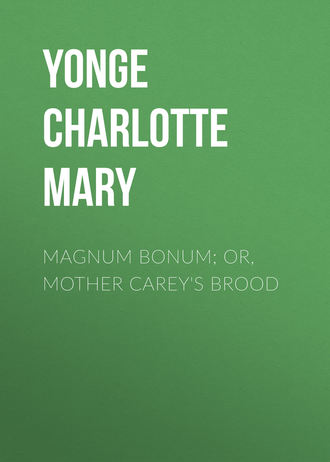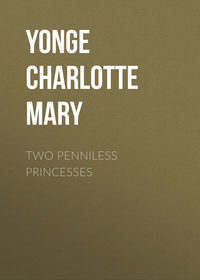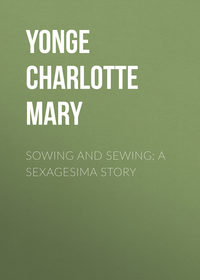 полная версия
полная версияПолная версия
Magnum Bonum; Or, Mother Carey's Brood
Johnny, however, was glad of the invitation, even though a little shy of it. The tete-a-tete drive was an approach to the serious business of life, since it was evidently designed to give opportunity for answering a letter which he had thought out and written while laid up at Leukerbad by a bad cold and the reaction from his exertions at Schwarenbach.
Still his father did not speak till they had driven up the hill, and were near the gates of Belforest. Then he said—
“That was not a bad letter that you wrote me, Johnny.”
Johnny flushed with pleasure. The letter had cost him much thought and pains, and commendation from his father was rare.
“But it will take a great deal of consideration.”
“Yes,” said Johnny. “You don’t disapprove, do you, papa?”
“Well,” said the Colonel, in his ponderous way, “you have advantages, you know, and you might do better for yourself.”
There was a quivering impulse on Johnny’s lips to say that it was not to himself that he wanted to do good; but when his father was speaking in that deliberate manner, he was not to be interrupted, and there was nothing for it but to hear him out.
“Your aunt is providing you with the best of educations, you have good abilities and industry, and you will be a well-looking fellow besides,” added the Colonel, glancing over him with an approving eye of fatherly satisfaction; “and it seems to me that you could succeed in some superior line. Your mother and I had always hoped to see you at the bar. Every opportunity for distinction is given you, and I do not understand this sudden desire to throw them up for a profession of much greater drudgery and fewer chances of rising, unless it were from some influence of your aunt.”
“She never spoke of it. She does not know that I have thought of it, nor of my letter to you.”
“Then it is simply from enthusiasm for this young doctor?”
“Not exactly,” said John, “but I always wished I could be like my uncle. I remember hearing mamma read a bit of one of the letters of condolence which said ‘His was one of the most beautiful lives I have ever known,’ and I never forgot it. It stayed in my mind like a riddle, till I gradually found out that the beauty was in the good he was always doing—”
“Ah!” said the Colonel, in a tone betokening that he was touched, and which encouraged John to continue,—
“Besides, I really do like and enter into scientific subjects better than any others; I believe it is my turn.”
“Perhaps—you do sometimes put me in mind of your uncle. But why have you only spoken of it now?”
“I don’t think I really considered what I should be,” said John. “There was quite enough to think of with work, and cricket, and all the rest, till this spring, when I have been off it all, and then when I talked it over with Dr. Medlicott, he settled my mind about various things that I wanted to know.”
“Did he persuade you?”
“No more than saying that I managed well for Jock when I was left alone with him, and that he thought I had the makings of a doctor in me. He loves his profession of course, and thinks it a grand one. Yes, papa, indeed I think it is. To be always learning the ways of God’s working, for the sake of lessening all the pain and grief in the world—”
“Johnny! That’s almost what my brother said to me thirty years ago, and what did it come to? Being at the beck and call night and day of every beggar in London, and dying at last in his prime, of disease caught in their service.”
“Yes,” said John, with a low, gruff sound in his voice, “but is not that like being killed in battle?”
“The world doesn’t think it so, my boy,” said the soldier. “Well! what is it you propose to do?”
“I don’t suppose it will make much difference yet,” said John, “except that at Oxford I should go in more for physical science.”
“You don’t want to give up the university?”
“Oh, no! Dr. Medlicott said a degree there is a great help, besides that, all the general study one can get is the more advantage, lifting one above the mere practitioner.”
“That is well,” said the Colonel. “If you are to go to the university, there is no need to dwell further on the matter at present. You will have had time to see more of the world, and you will know whether this wish only comes from enthusiasm for a pleasant young man who has been kind to you, or if it be your real deliberate choice, and if so, your mother will have had time to reconcile herself to the notion. At any rate we will say no more about it for the present. Though I must say, Johnny,” he added, as he turned his horse’s head between the ribbon borders of the approach, “you have thought and spoken like a sensible lad, and so like my dear brother, that I could not deny you.”
If Johnny could hardly believe in the unwonted commendation which made his heart throb, and sent a flood of colour into his cheeks. Colonel Brownlow was equally amazed at the boy’s attainment of a manly and earnest thought and purpose, so utterly unlike anything he had hitherto seen in the stolid Rob, or the easy-going Allen, or even in Bobus, who—whatever there might be in him—never thought it worth while to show it to his uncle.
However, discussion was cut short by a little flying figure which came rushing across the garden, and Babie with streaming hair clung to her cousin, gasping—
“Oh! Johnny, Johnny, tell me about Armie and Jock.”
“They are ever so much better, Babie,” said Johnny, lifting the slim little thing up in his arms, as he had lifted his own five-year-old brother; “I’ve got a thick parcel of acrostics for you, Armie makes them in bed, and Lord Fordham writes them out.”
“Will you come to the rosary, Uncle Robert?” said Babie, recovering her manners, as Johnny set her down. “It is the coolest place, and they are sitting there.”
“Why, Babie, what a sprite you look,” said Johnny. “You look as if you were just off the sick-list too!”
“I’m all right,” said Babie, shaking her hair at him, and bounding on before with the tidings of their coming, while her uncle observed in a low voice—
“Poor little thing! I believe she has been a good deal knocked up between the heat and the anxiety; there was no making her eat or sleep. Ah! Miss Elfie, are you acting queen of roses?” as Babie returned together with Elvira, who with a rich dark red rose over one ear, and a large bouquet at her bosom, justified the epithet at which she bridled, and half curtsied in her graceful stately archness, as she gave her hand in greeting, and exclaimed—
“Ah, Johnny! are you come? When is Mother Carey going to send for us?”
“When they leave Leukerbad I fancy,” said John. “That’s a tiresome place for anyone who does not need to lead the life of a hippopotamus.”
“It can’t be more tiresome than this is,” said Elvira, with a yawn. “Lessons all day, and nobody to come near us.”
“Isn’t this a dreadful place?” said John, merrily, as he looked into the rosary, a charming bowery circle of fragrance, inclosed by arches of trellis-work on which roses were trained, their wreaths now bearing a profusion of blossoms of every exquisite tint, from deep crimson or golden-yellow, to purest white, while their more splendid standard sisters bloomed out in fragrant and gorgeous magnificence under their protection.
At the shady end there was a little grass plat round a tiny fountain, whose feather of spray rose and plashed coolness. Near it were seats where Miss Ogilvie and Janet were discovered with books and work. They came forward with greetings and inquiries, which Johnny answered in detail.
“Yes, they are both better. Armine sat by the window for an hour the day before I came away.”
“Will they be able to come back to Eton after the holidays?” asked his father.
“Certainly not Armine, but Jock seems to be getting all right. If he was to catch rheumatism he did it at the right place, for that’s what Leukerbad is good for. Oh, Babie, you never saw such a lark! Fancy a great room, and where the floor ought to be, nothing but muddy water or liquid mud, with steps going down, and a lot of heads looking out of it, some with curly heads, some in smoking-caps, some in fine caps of lace and ribbons.”
“Oh! Johnny; like women!”
“Like women! They are women.”
“Not both together.”
“Yes, I tell you, the whole boiling of them, male and female. There’s a fat German Countess, who always calls Jock her liebes Kind, and comes floundering after him, to his very great disgust. The only things they have to show they are human still, and not frogs, are little boards floating before them with their pocket-handkerchiefs and coffee-cups and newspapers.”
“Oh! like the little blacks in the dear bright bays at San Ildefonso,” cried Elvira.
“You don’t mean that they have no clothes on?” said Babie, with shocked downrightness of speech that made everybody laugh; and Johnny satisfied her on that score, adding that Dr. Medlicott had made a parody of Tennyson’s “Merman,” for Jock’s benefit, on giving him up to a Leukerbad doctor, who was to conduct his month’s Kur. It was to go into the “Traveller’s Joy,” a manuscript magazine, the “first number of which was being concocted and illustrated amongst the Leukerbad party, for the benefit of Babie and Sydney Evelyn. As a foretaste, Johnny produced from the bag he still carried strapped on his shoulder, a packet of acrostics addressed to Miss Barbara Brownlow, and a smaller envelope for Janet.
“Is it the key?” asked Colonel Brownlow.
“Yes,” said Janet, “the key of her davenport, and directions in which drawer to find the letters you want. Do you like to have them at once, Uncle Robert?”
“Thank you—yes, for then I can go round and settle with that fellow Martin, which I can’t do without knowing exactly what passed between him and your mother.”
Janet went off, observing—“I wonder whether that is a possibility;” while Miss Ogilvie put in an anxious inquiry for Mrs. Brownlow’s health and spirits, and a good many more details were elicited than Johnny had given at home. She had never broken down, and now that she was hopeful, was, in spite of her fatigue, as bright and merry as ever, and was contributing comic pictures to the “Traveller’s Joy,” while Lord Fordham did the sketches. Those kind people were as careful of her as any could be.
“And what are her further plans?” asked Miss Ogilvie. “Has she been able to form any?”
“Hardly,” said Johnny. “They must stay at Leukerbad for a month for Jock to have the course of waters rightly, and indeed Armine could hardly be moved sooner. I think Dr. Medlicott wants them to keep in Switzerland till the heat of the weather is over, and then winter in the south.”
“And when may I go to Armine?”
“When shall we get away from here?” asked Babie and Elfie in a breath.
“I don’t quite know,” said John. “There is not much room to spare in the hotel where they are at Leukerbad, and it is a dreadfully slow place. Evelyn is growling like a dozen polar bears at it.”
“Why isn’t he gone back with you to Eton?”
“I believe it was settled that he was not to go back this half, for fear of his lungs, and you see he is a swell who takes it easily. He would have been glad enough to return with me though, and would scarcely have endured staying, but that he is so fond of Jock.”
“What is there to be done there?”
“Nothing, except to wade in tepid mud. Fordham has routed out a German to read Faust with, and that puts Evelyn into a sweet temper. They go on expeditions, and do sketching and botany, which amuses Armine; but they get up some fun over the queer people, and do them for the mag., but it is all deadly lively, not that I saw much of it, for we only got down from Schwarenbach on Monday, and they kept me in bed all the two next days; but Jock and Evelyn hate it awfully. Indeed Jock is so down in the mouth altogether I don’t know what to make of him, and just when the German doctors say the treatment makes people particularly brisk and lively.”
“Perhaps what makes a German lively makes an Englishman grave,” sagely observed Babie.
“Jock grave must be a strange sight,” said the Colonel; “I am afraid he can’t be recovering properly.”
“The doctor thinks he is,” said John; “but then he doesn’t know the nature of the Skipjack. But,” he added, in a low voice, “that night was enough to make any one grave, and it was much the worst to Jock, because he kept his senses almost all the time, and was a good deal hurt besides to begin with. His sprain is still so bad that he has to be carried upstairs and to go to the baths in a chair.”
“And do you think,” said the Colonel, “that this young lord is going to stay on all this time in this dull place for the sake of an utter stranger?”.
“Jock and Evelyn were always great friends at Eton,” said John. “Then my uncle did something, I don’t know what, that Medlicott is grateful for, and they have promised to see Armine through this illness. The place agrees with Fordham; they say he has never been so well or active since he came out.”
“What is he like?” inquired Babie.
“Like, Babie? Like anything long and limp you can think of. He sits all in a coil and twist, and you don’t think there’s much of him; but when he gets up and pulls himself upright, you go looking and looking till you don’t know where’s the top of him, till you see a thin white face in washed-out hair. He is a good fellow, awfully kind, and I suppose he can’t help being such a tremendous—” John hesitated, in deference to his father, for a word that was not slang, and finally chose “don.”
“Oh,” sighed Babie, “Armie said in his note he was jolly beyond description.”
“Well, so he is,” said John; “he plays chess with Armie, and brings him flowers and books, and waits on him as you used to do on a sick doll. And that’s just what he is; he ought to have been a woman, and he would have been much happier too, poor fellow. I’d rather be dead at once than drag about such a life of coddling as he does.”
“Poor lad!” said his father. “Did Janet understand that I was waiting for those letters, I wonder?”
“You had better go and see, Babie,” said Miss Ogilvie. “Perhaps she cannot find them.”
Babie set off, and John proceeded to explain that Mrs. Evelyn was still detained in London by old Lady Fordham, who continued to be kept between life and death by her doctors. Meantime, the sons could dispose of themselves as they pleased, while under the care of Dr. Medlicott, and were not wanted at home, so that there was little doubt but that they would remain with Armine as long as he needed their physician’s care.
All the while Elfie was flitting about, pelting Johnny with handfuls snatched from over-blown roses, and though he returned the assault at every pause, his grey travelling suit was bestrewn with crimson, pink, cream, and white petals.
At last the debris of a huge Eugenie Grandet hit him full on the bridge of his nose, and caused him to exclaim—
“Nay, Elfie, you little wretch; that was quite a good rose—not fair game,” and leaping up to give her chase in and out among the beds, they nearly ran against Janet returning with the letters, and saying “she was sorry to have been so long, but mother’s hoards were never easy places of research.”
Barbara came more slowly back, and looked somewhat as if she had had a sharper rebuke than she understood or relished.
Poor child! she had suffered much in this her first real trouble, and a little thing was enough to overset her. She had not readily recovered from the petulant tone of anger with which Janet told her not to come peeping and worrying.
Janet had given a most violent start when she opened the door of her mother’s bedroom where the davenport stood; and Janet much resented being startled; no doubt that was the reason she was so cross, thought Barbara, but still it was very disagreeable.
That room was the child’s also. She had been her mother’s bed-fellow ever since her father’s death, and she felt her present solitude. The nights were sultry, and her sleep had been broken of late.
That night she was in a slumber as cool as a widely-opened window would make it, but not so sound that she was not haunted all the time by dread for Armine.
Suddenly she was awakened to full consciousness by seeing a light in the room. No, it was not the maid putting away her dresses. It was Janet, bending over her mother’s davenport.
Babie started up.
“Janet! Is anything the matter?”
“Nothing! Nonsense! go to sleep, child.”
“What are you about?”
“Never mind. Only mother keeps her things in such a mess; I was setting them to rights after disturbing them to find the book.”
There was something in the tone like an apology.
Babie did not like it, but she well knew that she should be contemptuously put down if she attempted an inquiry, far less a remonstrance, with Janet. Only, with a puzzled sort of watch-dog sense, she sat up in bed and stared.
“Why don’t you lie down?” said Janet.
Babie did lie down, but on her back, her head high up on the pillow, and her eyes well open still.
Perhaps Janet did not like it, for she gave an impatient shuffle to the papers, shut the drawer with a jerk, locked it, took up her candle, and went away without vouchsafing a “good-night.”
Babie lay wondering. She knew that the davenport contained all that was most sacred and precious to her mother, as relics of her old life, and that only dire necessity would have made her let anyone touch it. What could Janet mean? To speak would be of no use. One-and-twenty was not likely to listen to thirteen, though Babie, in her dreamy wakefulness, found herself composing conversations in which she made eloquent appeals to Janet, which she was never likely to utter.
At last the morning twitterings began outside, doves cooed, peacocks miawed, light dawned, and Babie’s perceptions cleared themselves. In the wainscoted room was a large closet, used for hanging up cloaks and dresses, and fortunately empty. No sooner did the light begin to reflect itself in its polished oak-panelled door, than an idea struck Babie, and bounding from her bed, she opened the door, wheeled in the davenport, shut it in, turned the big rusty key with both hands and a desperate effort, then repairing to her own little inner room, disturbed the honourable retirement of the last and best-beloved of her dolls in a pink-lined cradle in a disused doll’s house, and laying the key beneath the mattress, felt heroically ready for the thumbscrew rather than yield it up. She knew Armine would say she was right, and be indignant that Janet should meddle with mother’s private stores. So she turned over on the pillow, cooled by the morning breeze, and fell into a sound sleep, whence she was only roused by the third “Miss Barbara,” from her maid.
She heard no more of the matter, and but for the absence of the davenport could really have thought it all a dream.
She was driving her two little fairy ponies to Kenminster with Elvira, to get the afternoon post, when a quiet, light step came into the bedroom, and Janet stood within it, looking for the davenport, as if she did not quite believe her senses. However, remembering Babie’s eyes, she had her suspicions. She looked into the little girl’s room and saw nothing, then tried the closet door, and finding it locked, came to a tolerably correct guess as to what had become of it, and felt hotly angry at “that conceited child’s meddling folly.”
For the awkward thing was that the clasped memorandum-book, containing “Magnum Bonum,” was in her hand, locked out of, instead of into, its drawer.
When searching for the account-book for her uncle, it had, as it were, offered itself to her; and though so far from being green, with “Garden” marked on it, it was Russia leather, and had J. B. upon it. She had peeped in and read “Magnum Bonum” within the lid. All day the idea had haunted her, that there lay the secret, in the charge of her little thoughtless mother, who, ignorant of its true value, and deterred by uncomprehended words and weak scruples, was withholding it from the world, and depriving her own family, and what was worst of all, her daughter, of the chances of becoming illustrious.
“I am his daughter as much as hers,” thought she. “Why should she deprive me of my inheritance?”
Certainly Janet had been told that the great arcanum could not be dealt with by a woman; but this she did not implicitly believe, and she was in consequence the more curious to discover what it really was, and whether it was reasonable to sacrifice the best years of her life to preparing for it. The supposed unfairness of her exclusion seemed to her to justify the act, and thus it was that she had stolen to the davenport when she supposed that her little sister would be asleep, and finding it impossible to attend or understand with Babie’s great brown eyes lamping on her, she had carried off the book.
She had been reading it even till the morning light had surprised her, and had been able to perceive the general drift, though she had leaped over the intermediate steps. She had just sufficient comprehension of the subject for unlimited confidence that the achievement was practicable, without having knowledge enough to understand a tithe of the difficulties, though she did see that they could hardly be surmounted by a woman unassisted. However, she might see her way by the time her studies were completed, and in the meantime her mother might keep the shell while she had the essence.
However, to find the shell thus left on her hands was no slight perplexity. Should she, as eldest daughter left in charge, demand the desk, Barbara would produce her reasons for its abstraction, and for this Janet was not prepared. Unless something else was wanted from it, so as to put Babie in the wrong, Janet saw no alternative but to secure the book in her own bureau, and watch for a chance of smuggling it back.
Thus Babie escaped all interrogation, but she did not release the captive davenport, and indeed she soon forgot all about it in her absorption in Swiss letters.
CHAPTER XXIII. – THE LOST TREASURE
But solemn sound, or sober thought The Fairies cannot bear; They sing, inspired with love and joy, Like skylarks in the air. Of solid sense, or thought that’s grave, You find no traces there. Young Tamlane.When old Lady Fordham’s long decay ended in death, Mrs. Evelyn would not recall her sons to the funeral, but meant to go out herself to join them, and offered to escort Mrs. Brownlow’s daughters to the meeting-place. This was to be Engelberg, for Dr. Medlicott had decided that after the month at Leukerbad all his patients would be much the better for a breath of the pine-woods on the Alpine height, and undertook to see them conveyed thither in time to meet the ladies.
This proposal set Miss Ogilvie free to join her brother, who had a curacy in a seaside place where the season began just when the London season ended. Her holiday was then to begin, and Janet was to write to Mrs. Evelyn and declare herself ready to meet her in London at the time appointed.
The arrangement was not to Janet’s taste. She thought herself perfectly capable of escorting the younger ones, especially as they were to take their maid, a capable person named Delrio, daughter of an Englishwoman and a German waiter, and widow of an Italian courier, who was equal to all land emergencies, and could speak any language. She belonged to the young ladies. Their mother, not liking strangers about her, had, on old nurse’s death, caused Emma to learn enough of the lady’s maid’s art for her own needs at home, and took care of herself abroad.
Babie was enraptured to be going to Mother Carey and Armine, and Elvira was enchanted to leave the schoolroom behind her, being fully aware that she always had more notice and indulgence from outsiders than at home, or indeed from anyone who had been disappointed at her want of all real affection.
“You are just like a dragon fly,” said Babie to her; “all brightness outside and nothing within.”
This unusually severe remark came from Babie’s indignation at Elvira’s rebellion against going to River Hollow to take leave. It would be a melancholy visit, for her grandfather had become nearly imbecile since he had had a paralytic stroke, in the course of the winter, and good sensible Mrs. Gould had died of fever in the previous autumn.
Elvira, who had never liked the place, now loathed it, and did not seem capable of understanding Babie’s outburst.











